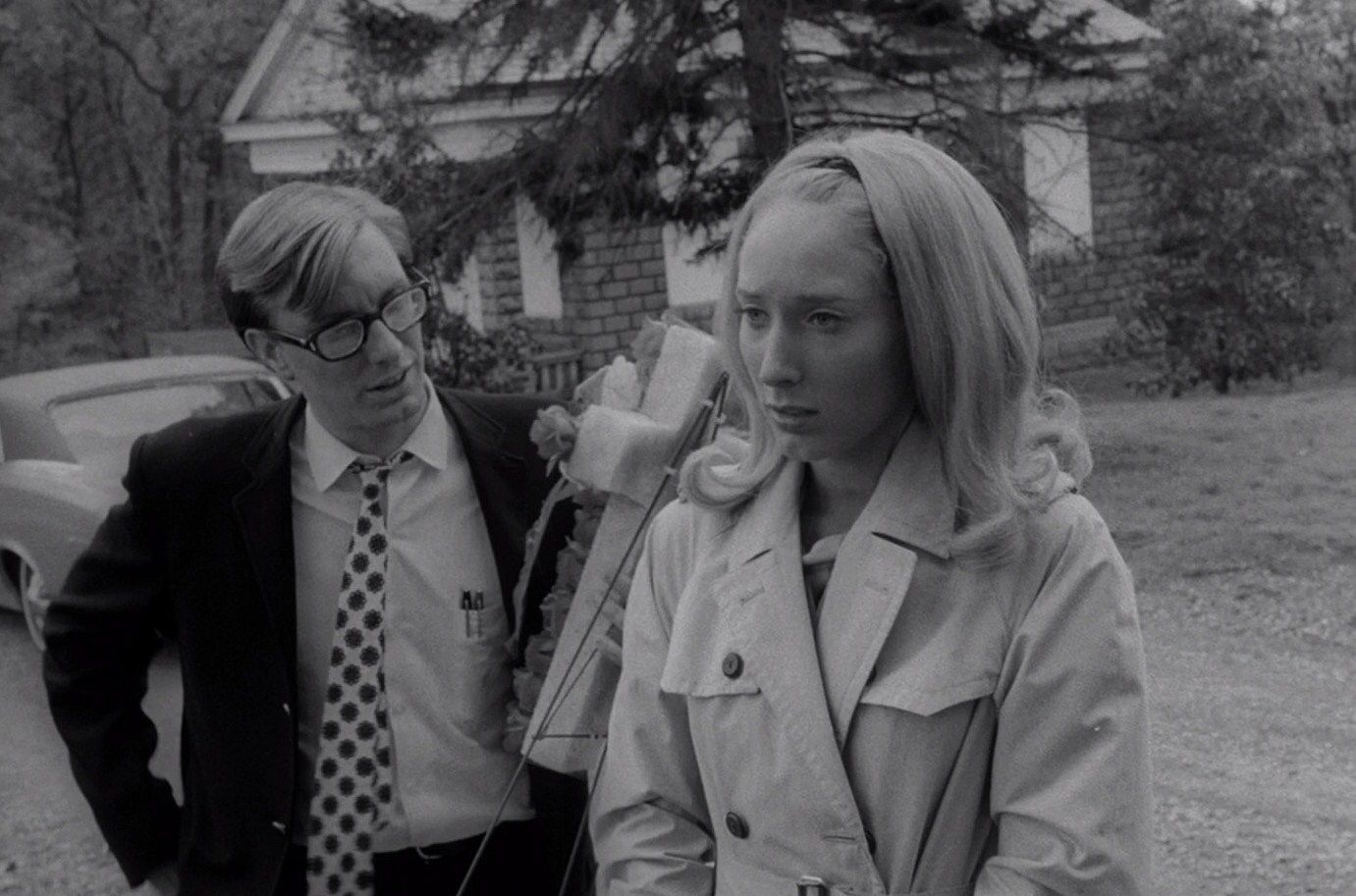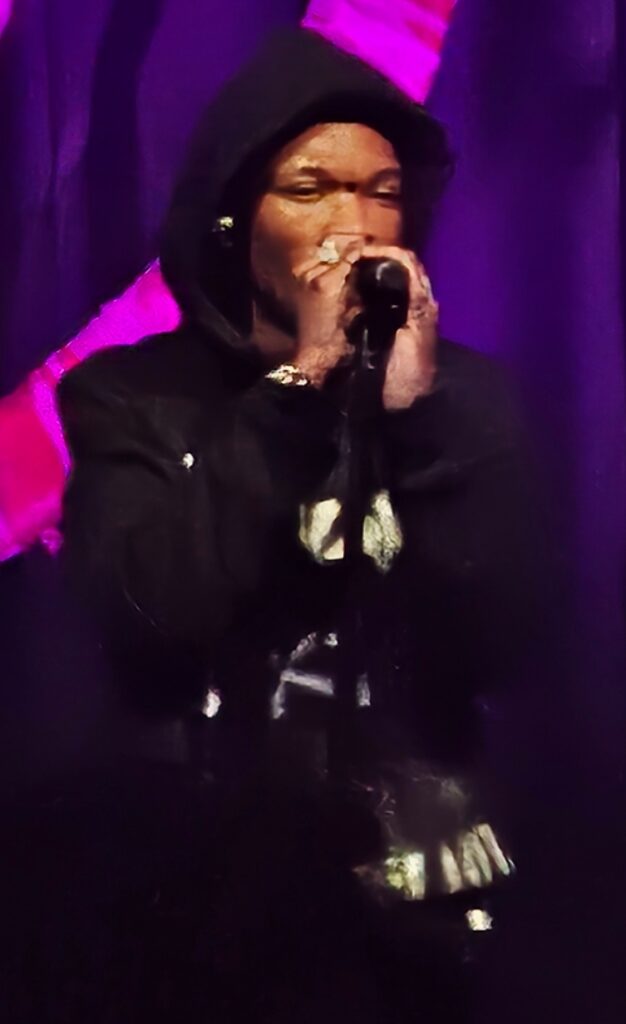In the vast landscape of cinema, few genres captivate the imagination quite like fantasy and its close cousin, science fiction. We flock to these films seeking escape, wonder, and epic tales of heroism and magic. For every *Lord of the Rings* or *Star Wars* that becomes a cultural touchstone, there’s a myriad of ambitious projects that crumble under their own grandiosity, leaving audiences bewildered, disappointed, or simply bored. These often aren’t low-budget B-movies, but high-profile productions with significant backing, proving that even Hollywood’s finest can spectacularly misfire.
The journey of a film from concept to screen is fraught with peril. When crafting fantastical worlds, a promising premise can be undone by a convoluted script, or stellar visual effects may fail to compensate for hollow characters. Even established franchises aren’t immune to disaster. Today, we’re diving deep into the celluloid graveyard to unearth some of the most infamous “epic fails” in the fantasy and sci-fi canon – films you might want to skip on your next streaming binge.

1. **Dungeons And Dragons (2000)**Envision sprawling quests and rich magic when you hear “Dungeons and Dragons.” A movie based on this iconic RPG should have been a slam dunk. Yet, Courtney Solomon’s 2000 adaptation achieved a “crapness” that still mystifies, making one wonder where its $35 million budget actually went. It was an epic misfire from the outset.
The film served as a masterclass in squandered potential. Visually, it was a disaster: gaudy sets, plastic props, and costumes resembling Pound Shop dress-up. Even crucial visual effects were inept, rendering a world less fantastical realm and more poorly executed video game cutscene. It was a symphony of visual incompetence.
Beyond aesthetics, the acting was uniformly terrible, despite good actors like Jeremy Irons and Thora Birch. Their performances often seemed deliberately annoying, with Irons’s over-the-top villainy bordering on self-parody. The script itself suffered from bad dialogue, simplistic plotting, and characters so dire they barely registered with audiences.
Most egregious was its profound contempt for the source material. While including a dwarf and an elf, these characters were given “sod all to do except look ridiculous.” The film failed as cinema and as an adaptation, disrespecting the game and leaving fans utterly betrayed by its incoherent vision.
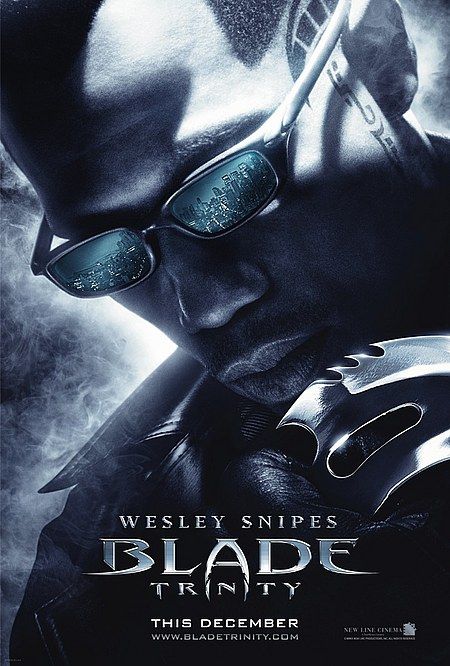
2. **Blade Trinity (2004)**David S. Goyer’s directorial debut, *Blade: Trinity*, showed that a successful screenwriter isn’t always a great director. Following two strong installments, expectations were present for chapter three. However, the film quickly announced its self-awareness with opening narration declaring, “Movies are full of shit,” a prophecy tragically accurate for this entry.
*Blade: Trinity* offered a vacuous experience struggling to deliver basic action-horror thrills. Unlike *Blade II*’s memorable visuals, *Trinity* presented “no notable production values or original ideas.” A promising subplot about vampires giving Blade bad PR quickly fizzled, leaving little engaging narrative depth.
The film introduced new allies, the Nightstalkers, but their inclusion couldn’t elevate drab proceedings. Blade and companions faced the “drabbest Dracula ever,” with fight scenes reduced to “bar room brawls.” Weaponry felt humdrum, special effects were sparse and unspectacular, and locations overwhelmingly drab, failing to create atmosphere.
Adding insult, the film injected humor that mostly fell flat, relying on Blade’s “irritating comedy sidekick saying ‘F**k!’ and ‘Dick!’ a lot.” Snipes’s cringe-inducing “coochie-coo” highlighted tonal inconsistencies. The “vampire Pomeranian pooch” encapsulates how far it strayed from its dark, compelling roots.
Read more about: Mind-Bending Masterpieces: The Sci-Fi Films That Absolutely Revolutionized Cinema and Blew Our Minds

3. **Jack Frost (1998)**A kids’ film about a talking snowman seems innocuous. Yet, *Jack Frost* (1998) transcends mediocrity to become a notable cinematic misstep. Its execution firmly secures its place among ambitious failures, proving even simple ideas can go horribly awry with baffling creative choices.
The premise involves a deceased musician, Michael Keaton, reincarnated as a snowman, seeking a second chance with his son. This sentimental hook struggled amidst an uneven tone and questionable special effects that haven’t aged gracefully. The talking snowman, while charming in concept, often crossed into unintentionally creepy territory.
Despite family-friendly aspirations, *Jack Frost* rarely delivered genuine warmth or humor, falling back on predictable tropes. The narrative failed to truly engage, and emotional beats, intended to resonate, frequently felt forced or underdeveloped. It aimed for heartfelt sentimentality but often landed on saccharine or simply baffling.
Ultimately, *Jack Frost* failed to carve a memorable place in either holiday movie canon or fantasy. Its potential for charming wonder was undermined by its execution, leaving viewers with blandness rather than enchantment. It’s a reminder that even simple, heartwarming premises require careful crafting to avoid becoming forgettable.
Read more about: Revisiting The Vault: 10 Disney Movie Sequels That Should Have Never Happened

4. **Popeye (1980)**Robert Altman, celebrated for *MASH* and *Nashville*, helmed live-action *Popeye* in 1980, hoping to finance future projects. This plan backfired spectacularly, as *Popeye* flopped monumentally, baffling audiences. Despite revisionist attempts to reclaim it, for many, it remains a bizarre and largely unwatchable cinematic experiment.
The film’s numerous failings were evident, especially as a musical. It struggled to deliver “decent musical numbers,” with Harry Nilsson’s songs ranging from “forgettable to unlistenable.” Worse, tunes were delivered in “irritating comedy voices,” including Robin Williams as Popeye sounding “like a goat on helium,” making music a significant drawback.
As an action film, *Popeye* featured “embarrassingly-staged stunts” lacking excitement. For a comedy, it offered “little to laugh at,” with humor consistently missing the mark. Most perplexing was reimagining the cartoon as “social satire about class warfare,” altering characters and introducing dull, “out-of-place” discussions about taxes.
The film’s attempt to infuse *Popeye*’s simple charm with sophisticated commentary proved disastrous. It alienated fans while failing to appeal to adult cinema enthusiasts. Altman’s *Popeye* stands as a prime example of a commercial project undone by an idiosyncratic and misguided creative vision that resonated with virtually no one.
Read more about: Tony Roberts, Urbane Stage and Screen Veteran, Dies at 85: A Life Defined by Versatility and Woody Allen Collaborations

5. **Scooby-Doo (2002)**Generations grew up with Scooby-Doo and Mystery Inc.’s animated antics. A 2002 live-action adaptation, promising to bring characters to a new medium, held appeal. However, Raja Gosnell’s *Scooby-Doo* film proved a resounding “Scooby-Don’t,” leaving audiences questioning its uninspired translation of a beloved property.
The film’s primary strength, Matthew Lillard’s “brilliant” Shaggy, ironically highlighted its greatest weakness. Lillard perfectly captured the character. Yet, his commitment only emphasized “how dreadful just about everything else in the movie is,” making his valiant effort tragically misplaced within a sea of mediocrity.
Beyond Lillard, the film struggled to capture the cartoons’ whimsical spirit. The script often fell flat, relying on juvenile humor. The core mystery was convoluted and unengaging, lacking clever twists and memorable villains. The tone felt inconsistent, veering between slapstick and an edgy, self-aware approach, without success.
The CGI for Scooby-Doo, though ambitious, often strayed into uncanny valley territory, making the titular character feel less lovable and more like a digital construct. Ultimately, the 2002 *Scooby-Doo* squandered a promising concept with a lackluster script, uneven direction, and a failure to capture its source’s magic, solidifying its place as a regrettable cinematic outing.
Read more about: Beyond the Scrunchies: The 14 Most Absolutely Stunning Actresses Who Ruled the 90s Silver Screen!
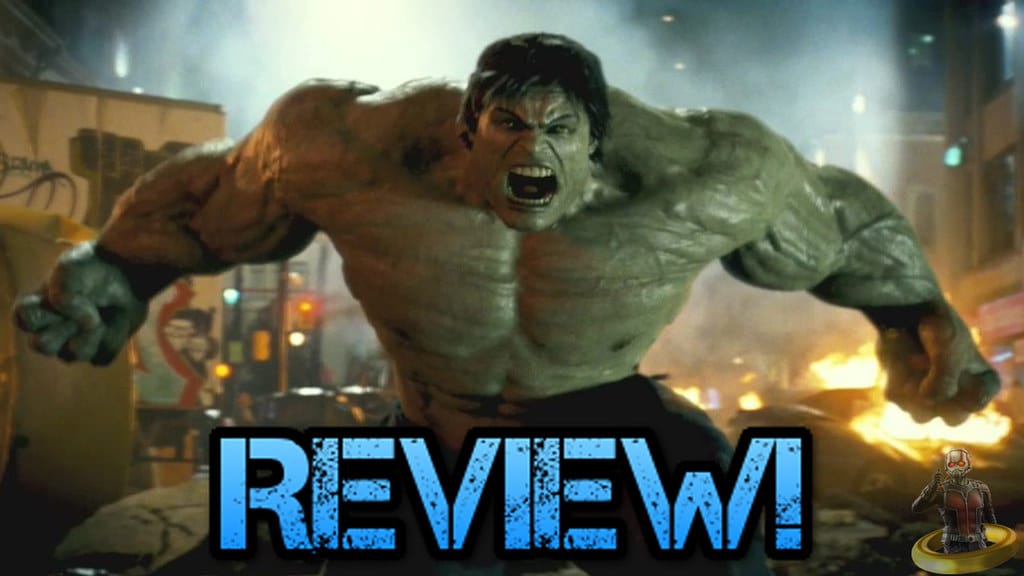
6. **The Hulk (2003)**Before the MCU, acclaimed director Ang Lee took on *The Hulk* in 2003, resulting in a film less a success and more a ponderous exercise in self-importance. Despite “a lot of great things,” *The Hulk* was fundamentally “boring,” an unforgivable sin for a blockbuster featuring a giant green rage monster, baffling critics and fans.
Lee’s artistic inclinations led to interesting stylistic choices, like “comic book-style editing” mimicking panel transitions. The film also featured “a great Hulk battle in the desert with the green goliath hurling tanks around,” delivering visceral spectacle. However, these flashes of brilliance were buried under an “insufferably pompous” narrative driven by excessive, impenetrable dialogue.
The primary issue lay in the script’s attempts at profound psychological depth, focusing on “rum speeches about repressed memories and gamma radiation.” While superhero films can have complex dialogue, *The Hulk* suffered because “while there’s lots of dialogue, it’s never really saying anything interesting.” Nick Nolte’s mumbling exacerbated the problem.
This dedication to weighty exposition felt ludicrous when juxtaposed with fantastical elements like “mutant dogs and giant jellyfish.” The “giant mutant poodle” was singled out as “the worst thing about it,” highlighting jarring tonal shifts and questionable decisions. Lee’s *The Hulk* was a noble failure, stumbling into a confused, overly talkative monster movie.
Our journey through the cinematic graveyard of grand ambitions continues, pulling back the curtain on more fantasy films that promised epic wonder but delivered monumental misfires. It’s a stark reminder that even with beloved source material and considerable budgets, the magic of storytelling can utterly evaporate on the big screen. We’re delving deeper into films that, for various reasons, left fans and critics alike scratching their heads, wondering how such potential could go so wrong.
Read more about: Reddit Reveals 16 Movie Subplots They Absolutely Couldn’t Stand

7. **The Hobbit Trilogy (2012-2014)**Peter Jackson’s return to Middle-earth was heralded with immense anticipation, yet his three-part adaptation of J.R.R. Tolkien’s comparatively slender novel, *The Hobbit*, ignited a storm of controversy. For many devout fans, this film series tragically “ruined J.R.R. Tolkien’s classic novels,” expanding a whimsical children’s tale into an often-bloated spectacle.
The trilogy took “significant liberties with the plot, characters, and themes” of the original book. The inclusion of a forced love triangle, particularly the creation of the entirely new character Tauriel, drew widespread criticism. These narrative deviations, along with an excessive reliance on CGI and drawn-out battle sequences, often felt like an attempt to mimic the epic scale of *The Lord of the Rings* rather than embracing the more intimate charm of *The Hobbit*.
Despite the widespread belief that it missed the mark, the films undeniably offered “genuinely stunning visuals, impressive action sequences, and memorable performances” from a talented ensemble. In certain moments, they did manage to “capture the essence of Tolkien’s world.” However, these flashes of brilliance were frequently overshadowed by the questionable creative choices that ultimately left audiences divided and many purists feeling profoundly disappointed by the sprawling, three-film adaptation of a single book.

8. **Percy Jackson & the Olympians: The Lightning Thief (2010)**Another high-profile literary adaptation that spectacularly misfired was Chris Columbus’ *Percy Jackson & the Olympians: The Lightning Thief*. Based on Rick Riordan’s hugely popular series, the film utterly “failed to capture the spirit and depth of the source material,” leaving a legion of young readers feeling profoundly let down.
Fans widely felt that the movie “watered down the complex characters and intricate mythology” that made the books so beloved. Significant changes were made to the core narrative, with “cutting out key scenes and altering important details” that were crucial to the book’s integrity and its established world-building. These alterations often left the plot feeling rushed and superficial, unable to resonate with the emotional weight of Riordan’s original work.
While the film did feature “exciting action sequences and a talented cast, including Logan Lerman, Pierce Brosnan, and Sean Bean,” their collective efforts couldn’t salvage the project. Ultimately, *Percy Jackson & the Olympians: The Lightning Thief* “fell short of meeting fans’ high expectations,” earning its regrettable spot on the list of fantasy adaptations that simply failed to do justice to their literary predecessors.

9. **Eragon (2006)**Christopher Paolini’s best-selling novel *Eragon* captivated millions with its dragons and sword-and-sorcery adventure. However, its 2006 film adaptation stands as a prime example of a cinematic undertaking that “failed to do justice to its source material.” The movie quickly garnered a reputation for its “weak script, bland characters, and questionable casting choices,” which collectively hobbled any chance of success.
Even with the presence of “talented actors such as Jeremy Irons and John Malkovich,” the performances across the board “fell flat, failing to capture the nuance and complexity of the book’s characters.” The narrative itself suffered from a fatal flaw: its plot “strayed significantly from the novel, omitting crucial details and character development” that were essential to understanding the world of Alagaësia and its inhabitants.
While *Eragon* did boast “impressive visual effects” that brought the dragon Saphira to life with some visual flair, these technical achievements were tragically unable to redeem the film. They couldn’t compensate for the fundamental storytelling failures that alienated fans and left critics unimpressed. The movie remains a frustrating reminder of how difficult it is to translate a rich literary world successfully to the big screen.
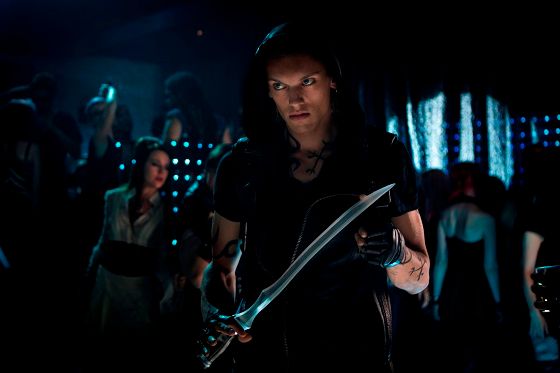
10. **The Mortal Instruments: City of Bones (2013)**Cassandra Clare’s popular young adult novel, *The Mortal Instruments: City of Bones*, promised a dark, urban fantasy world ripe for cinematic exploration. Unfortunately, its 2013 film adaptation became “yet another instance of a movie that failed to live up to expectations,” struggling to connect with both existing fans and new audiences.
The film was plagued by a “convoluted plot” that made its intricate mythology difficult to follow, alongside “flat characters, and lackluster performances.” Despite the cast, including Lily Collins and Jamie Campbell Bower, possessing “potential,” the script and direction “failed to fully realize their characters,” rendering them largely unengaging and devoid of the depth found in the books.
Adding to the disappointment, the movie “made significant changes to the original story, leaving fans feeling disappointed and disconnected from the film.” While there were moments of “stunning visual effects and thrilling action sequences,” these fleeting highlights were insufficient to rescue the film from its myriad narrative and character shortcomings. *The Mortal Instruments: City of Bones* ultimately falls short, joining the long list of fantasy movies that, regrettably, ruined the very books they were adapted from.

11. **The Chronicles of Narnia: Prince Caspian (2008)**Following the relative success of *The Lion, the Witch and the Wardrobe*, expectations were high for *The Chronicles of Narnia: Prince Caspian*. While the film featured a “stellar cast, featuring actors such as Ben Barnes and Peter Dinklage,” it notably “failed to fully capture the rich and magical world of Narnia” that C.S. Lewis so beautifully crafted.
Similar to other ill-fated fantasy adaptations, *Prince Caspian* made “considerable alterations to the narrative and characters,” often diverging significantly from Lewis’s original story. These changes contributed to “the audience feeling disheartened and detached,” as the unique charm and allegorical depth of Narnia were frequently diluted in favor of more conventional blockbuster tropes.
Despite its “breathtaking visuals and solid performances” from its impressive ensemble, *The Chronicles of Narnia: Prince Caspian* was ultimately unable to replicate the foundational “charm and wonder of the book.” It stands as a compelling example of an adaptation that, despite its best efforts and considerable resources, lost some of its soul in the translation from page to screen, leaving many fans longing for the purity of the written word.
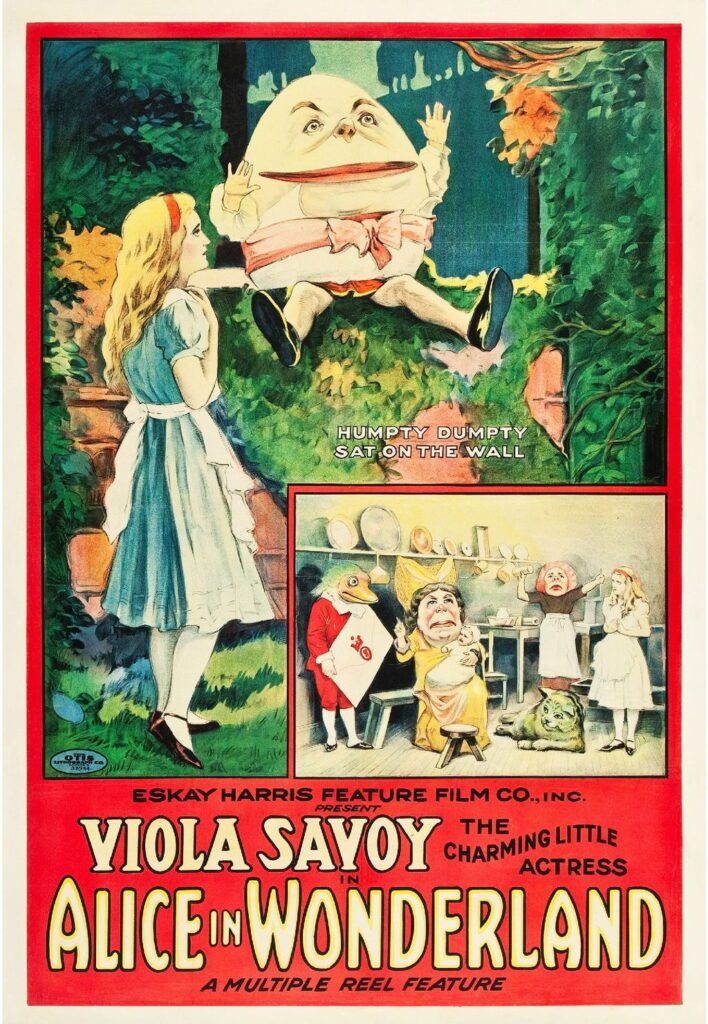
12. **Alice in Wonderland (2010)**Tim Burton’s distinctive vision for *Alice in Wonderland* in 2010 was met with a mix of anticipation and trepidation. While the film boasted an “impressive cast, stunning visual effects, and a unique interpretation of the classic story,” it ultimately “failed to capture the whimsy and magic that made Lewis Carroll’s work so beloved” by generations.
Burton’s characteristic dark and quirky aesthetic often felt at odds with the playful absurdity of Carroll’s original tales. Furthermore, the film “made substantial changes to both the story and characters that did not sit well with fans of the book,” transforming Alice from a curious observer into a reluctant warrior, a deviation that altered the very essence of her journey.
The lavish production and groundbreaking visual effects, while visually striking, could not compensate for these fundamental narrative shifts and the loss of the original’s lighter, more nonsensical spirit. *Alice in Wonderland* “fell short of its potential to bring Lewis Carroll’s original work to life on the big screen,” making it not just a disappointing fantasy adaptation, but a notable entry among movie adaptations in general that missed the mark on their treasured source material.
Our exploration of these cinematic disappointments underscores a vital truth: translating beloved fantasy worlds to film is an art form fraught with peril. Whether it’s due to misplaced ambition, a fundamental misunderstanding of the source material, or simply poor execution, these “epic fails” serve as cautionary tales. They remind us that for every *Lord of the Rings*, there are numerous ambitious projects that, despite their grand promises and significant investments, tragically crumble into obscurity or infamy. So, the next time you’re browsing for a fantastical escape, you might want to heed this list and steer clear of these over-the-top failures.


